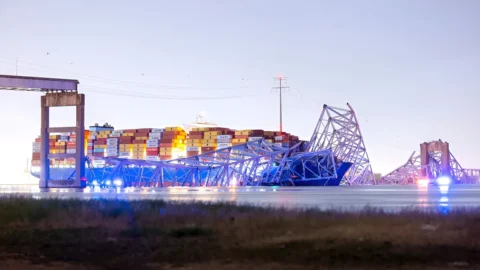Environmental Defense Fund, With the collaboration of Friends of the Earth, organized the event entitled “For a transnational ethical-climate responsibility – The ways of the Oil&Gas”. This is the second thematic conference (the first was held on 25 June) organized by EDF as part of the initiatives selected by the Ministry of Ecological Transition as side events to the Italian Pre-COP. The conference set itself the objective of promoting careful reflection on the responsibilities of fossil fuel consuming countries with respect to the climate-altering emissions of supplier countries.
Il world energy system it is mainly based on exchanges of energy raw materials. Emissions, in particular those of natural gas, are highly climate-altering both in the extraction and transport phases, and in end uses. Do the importing countries, which indirectly induce such activities in third country suppliers, have a responsibility for the emissions of the exporters? Is the principle of common but differentiated responsibilities fully balanced?
Despite the different personal and professional backgrounds, the speakers agreed on the need for a general obligation on States to ensure that activities under their jurisdiction respect the environment of other States, where the principle of sovereignty causes transboundary damage in the territory of a other state.
For this, one is needed shared responsibility, which reflects underlying cooperation obligations regarding the management and protection of common resources such as the climate. In this sense, consuming countries also have a responsibility for how the goods they buy are produced. However, the issue of how to translate this outcome into shared policies at an international level remains open, especially at a time when Europe is assuming a leading role in the fight against climate change.
The question of the centrality has emerged reduction of methane emissions to slow global warming. The recent IPCC report reaffirmed the responsibility of human activities in climate change and definitively clarified the role of methane emissions. The meeting of the G20 Energy and Climate Ministers, held in July, demonstrated that action in this area is what can, better than others, slow down global warming. The result was an initiative by the European Union and the United States, welcomed by Italy, to reduce global methane emissions by 30% by 2030 and reach an agreement at the COP26 meeting next November.
The commitments that will derive from the desirable future agreements will bring out the different technical and investment possibilities of the importing countries compared to the exporting countries. From here also emerges the appearance of social responsability of the industrial companies that are present and build the infrastructures in the exporting countries.
Link of the live streaming on the Amici della Terra YouTube channel
Attended the event:
Ilaria C. Restifo – Italian Representative for EDF, promoter of the event
Monica Tommasi – President of Friends of the Earth Italy Onlus
Benedetto della Vedova – Undersecretary of the Ministry of Foreign Affairs
Sandro Fuzzi – Institute of Atmospheric and Climate Sciences (ISAC), CNR
Domenico Gaudioso – GHG emissions expert for the IPCC, former ISPRA manager
Chiara Proietti Silvestri – Research Analyst RIE; ISPI Associate Fellow
Marco Grasso – Department of Sociology and Social Research, Milano Bicocca
Tebaldo Vinciguerra – Dicastery for Integral Development of the Human Person, Vatican
Matteo Andreozzi – Philosopher and expert in environmental ethics
Sergio Vergalli – President of the Italian Association of Environmental Economists and Natural Resources
Riccardo Magi – Deputy





